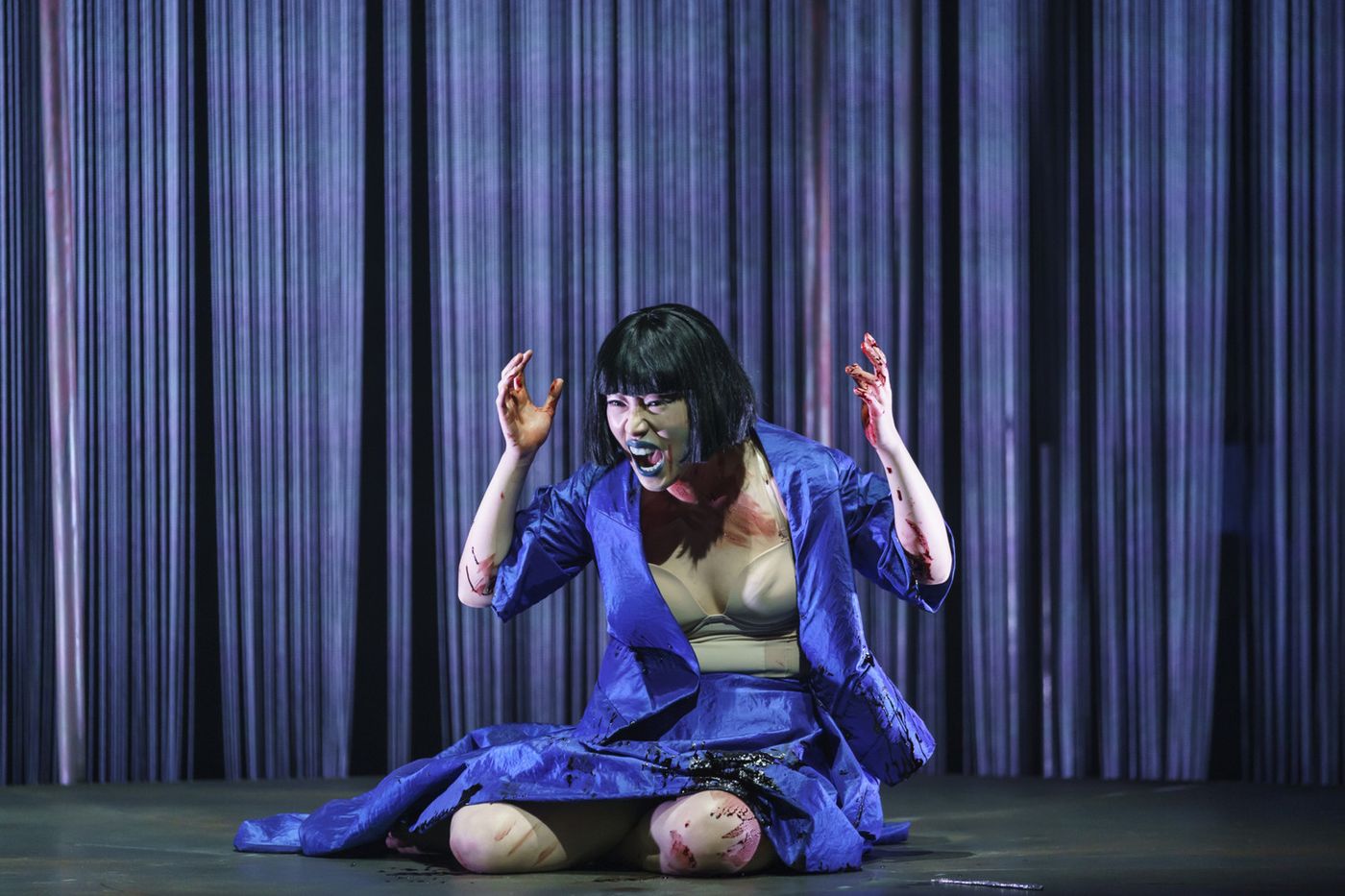Review: PHAEDRA, Linbury Theatre, Royal Opera House

![]() God, it's good to have the Linbury back. The reopening of the Royal Opera House's second, smaller space last December after a lengthy redesign brought with it all kinds of possibilities.
God, it's good to have the Linbury back. The reopening of the Royal Opera House's second, smaller space last December after a lengthy redesign brought with it all kinds of possibilities.
Repertoire excised from schedules or exiled (with mixed success) to partner venues could finally return, with whole swathes of contemporary and period repertoire suddenly back in the house. Since then, we've seen a thoughtful world premiere (Gavin Higgins' The Monstrous Child), a quite brilliant bit of Handel (Berenice), and now a new staging of Henze's late chamber opera Phaedra.
Wriggling with more musical blind alleys and dead ends than the labyrinth that haunts its story, Phaedra is an uneasy, often wilfully alienating work. A first half that retells the familiar story of Phaedra - the Athenian queen who falls in love with her husband's son Hippolytus, is rejected and cries rape, only to see his death and then kill herself - is divided from the second by worlds of time, space and style.
Between them, the composer fell into a two-month coma. Waking, he found a new language for a second act that follows Ovid's telling to Artemis's kingdom of Nemi. Here Hippolytus is resurrected, transformed into Virbius, king of the forest.
You can see why a story of rebirth and transformed life would stir Henze, and you can hear it from the first bars of Act II. Gone are the stern, ritual formality and arms-length passion simulations of Act I, replaced by kaleidoscopic brilliance, vivid shards of tonality and musical history assembled and reassembled in mesmerising patterns. At the centre of Henze's musical maze is no Minotaur, but something radiant and unexpectedly redemptive.
The composer himself called Phaedra a "concert opera", and at its weakest this staging by Noa Naamat feels superfluous. Add to Henze's chewy score a libretto by Christian Lehnert which is impassably, obfuscatingly dense and you already have a piece at war with its own drama, unsure whether to contemplate and philosophise or to feel.
Naamat responds to the work's symbolic, stylised action with some striking stage pictures, helped by Takis's futuristic designs, but a fiddly revolve that must serve as cage, glade and gladiatorial ring, draws focus (they really get their money's worth from it) and dilutes the tension so carefully fostered by the young cast.
The current crop of Jette Parker Young Artists is a strong one, and there's plenty here for them to cut their teeth on. There are shades of Salome and Lulu in Hongni Wu's bewitching Phaedra. Denied the inner life Britten draws in such concise brushstrokes for his Phaedra, Henze's must perform her desire, shame, desperation with gesture and frenzied action, at once egged-on and held back from the brink of suicide by Aphrodite (a ferocious, full-throttle Jacquelyn Stucker). The lightness and sheen to Wu's mezzo plays well against the oaky depth of Stucker's soprano, rebalancing this central power struggle.
Tenor Filipe Manu is a radiant, hapless Hippolytus, in thrall to Patrick Terry's androgynous Artemis (who has the toughest job of the evening, battling not always successfully through some of Henze's thickest orchestral textures), and bass Michael Mofidian impresses again with a late cameo as the Minotaur. Edmund Whitehead conducts a 23-strong Southbank Sinfonia, playing a long game with Act I's brittle, matter-of-fact textures before releasing into technicolour in Act II.
Phaedra has all the knotty, self-interrogating hallmarks of a late work. It's playful, referential but ultimately deeply serious in its interrogation of human identity and free will. What it is not is an emotional portrait. The score flows like water through the fingers when you expect blood, its ungraspable fluidity both startling and liberating - a response, if not an answer, to Britten and Birtwistle's treatments, both warmer to the touch.
Phaedra is at the Royal Opera House until 20 May
Photo credit: Bill Cooper
Reader Reviews
Videos

